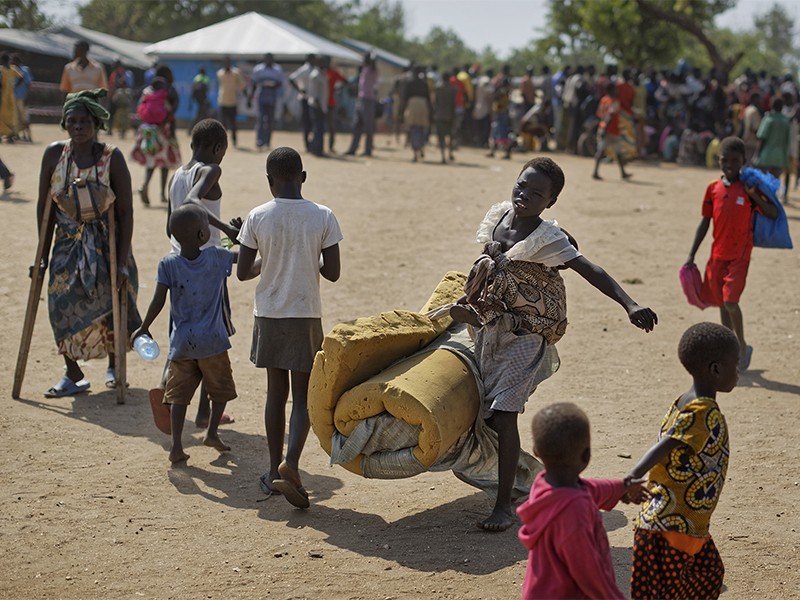Aid groups seek funds as Sudan crisis worsens
The number of South Sudanese refugees in Uganda has reached 1 million.

Christian agencies and churches are stepping up and coordinating efforts to respond to the South Sudanese refugee crisis as the number of people fleeing across the border into northern Uganda reaches 1 million.
Over the past year, militia groups and government forces have defied calls to end fighting, and refugees are also flooding into other neighboring countries.
“Death, displacement, hunger, and impoverishment have brought our people to their knees, and they are deeply tired of this unbearable situation,” the South Sudan Council of Churches said in a statement in August. “The parties to the conflicts appear not closer to a resolution, despite frameworks and signed agreements, risking total destruction of our beautiful land.”
In Uganda, Christian relief agencies sought to assist the nearly 1,800 people arriving daily.
“There is a lot of need,” said Anglican bishop Johnson Gakumba.
Gakumba said his church in northern Uganda has been providing assistance in Palorinya, a camp of 300,000 refugees in the diocese, but limited resources have hampered its work.
The UNHCR, the United Nation’s refugee agency, said in mid-August that the one-millionth South Sudanese refugee had crossed into Uganda. Agencies say that despite the deepening crisis, only a small part of the $1.4 billion needed by humanitarian agencies has been received.
The refugees’ movement into Uganda is a result of a conflict that started in 2013 between President Salva Kiir and his former deputy Riek Machar. Within months, it became a full-blown interethnic war, with soldiers loyal to Kiir’s Dinka people and rebels aligned with Machar’s Nuer people clashing in villages and towns.
Santina Philipp, 60, from South Sudan, told Lutheran World Federation: “Where we live, people are fighting all the time. So when the gunshots come closer, we run. Then we come back when we hear it is safe, and we run again when we hear of fighting coming closer. There is no rest. You might see your neighbor getting shot.”
It’s estimated that 60 percent of the refugees are children, including many unaccompanied minors who have suffered violence.
“This is a fast-growing humanitarian situation which we have never seen before,” said Benson Okabo, World Vision’s West Nile Refugee Response operations manager. “We are concerned that the donor assistance has been little.”
Komakech John Bosco Aludi of Caritas said the agencies are coordinating their actions and “keep away from politics to focus on saving humanity.”
World Vision officials said they were trying to identify and care for the unaccompanied minors in the refugee settlements and set up foster arrangements.
Annet Nansubuga, a 38-year-old Lutheran World Federation gender-based violence field-worker, has been working with unaccompanied minors and other South Sudanese refugees in Uganda. She previously worked in South Sudan for more than three years, LWF wrote in an article on South Sudan.
“There is a total absence of law,” she said. “Even rape is looked upon as normal.”
Nearly 90 percent of the refugees arriving in Uganda from South Sudan are women and children. Many of them witnessed family members being killed.
“They lean on me, and I cannot let them see how much their stories and this situation affect me,” Nansubuga said. —Christian Century staff; Religion News Service
A version of this article, which was edited on September 8, appears in the September 27 print edition under the title “Aid groups seek funds as Sudan crisis worsens.”





